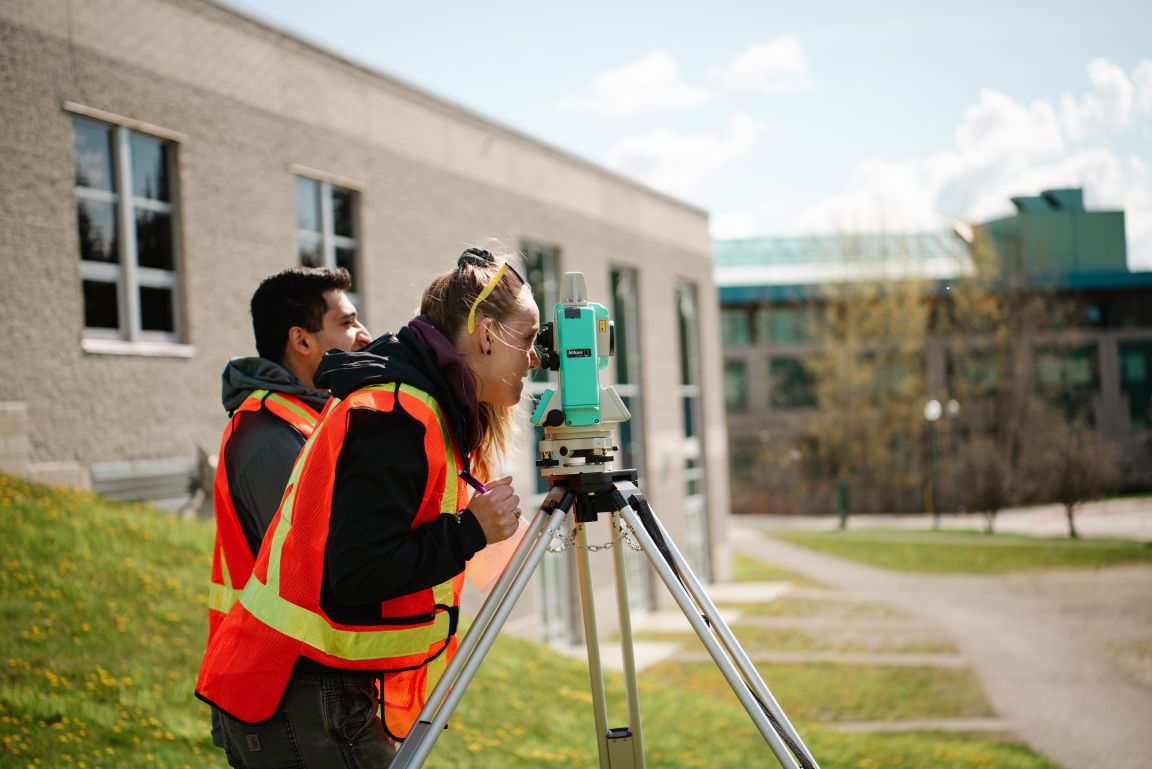
UNBC offers a rigorous civil engineering education augmented by business skills training and opportunities for specialized instruction in several areas. Today’s civil engineer not only designs the infrastructure essential to modern society (buildings, bridges, highways, transit systems, water and waste treatment facilities, foundations, tunnels, dams, etc.) but also analyzes the effects of deterioration on infrastructure elements while considering system interdependencies and life-cycle impacts. Civil engineers must consider environmental impact and economic sustainability in the development of modern infrastructure.
UNBC offers an integrated approach to civil engineering which is in keeping with the themes of design, life-cycle assessment, systems engineering, sustainable materials, renewable energy, and low-impact development throughout.
Engineering Labs at UNBC
UNBC students Rika Rao and Jeffrey Watson tour the Engineering Materials Lab.
Materials Lab tour
Civil and environmental engineering students use the Materials Lab to gain a practical understanding of soil mechanics, the physical properties of soils, soil compaction and permeability; seepage; stresses in soils; and consolidation. Civil engineers further study structure the properties of common building materials such as aggregates, cement, concrete, wood, steel and other construction materials.
Degree Overview
- Eight academic semesters
- Optional co-operative education work terms
- 4 years
- 153 credit hours
- Courses are taught through a variety of methods including group learning, team teaching, and the use of design suites.
Accreditation
The degree program is designed to meet the present accreditation guidelines established by the Canada Engineering Accreditation Board. Students graduating with a Bachelor of Applied Science in Civil Engineering from UNBC will have all of the necessary academic qualifications to be licensed as Professional Engineers (P.Eng.).
Job Opportunities
Civil Engineering graduates are critical to the growing northern and Canadian economy. The need to replace retiring engineers as they exit the workforce is growing, as the average age of civil engineers in B.C. is 50 years old, greater than in any other province. Engineers Canada projects an average of 667 job openings per year in British Columbia from 2015-2019 and continued high demand for the next decade.
Co-operative Education
UNBC offers Civil Engineering students optional co-op work terms. For more information visit the Co-operative Education page.